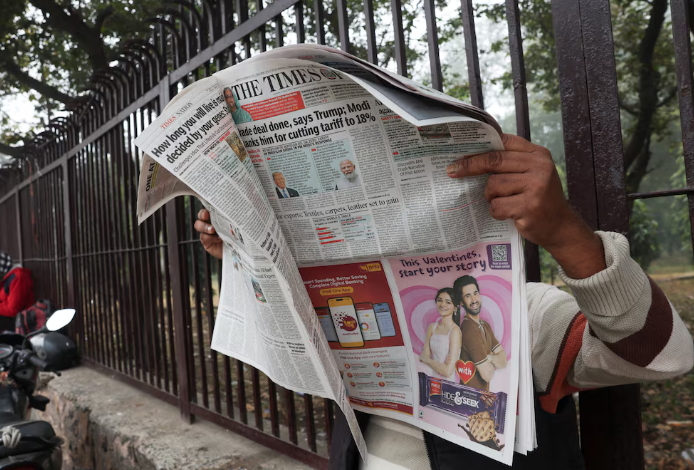WORLD NEWS

As President Donald Trump’s immigration crackdown intensifies, U.S. universities are stepping in to support foreign students, offering guidance on how to handle threats of deportation and how to navigate the increasingly stringent immigration policies. The tightening of rules, combined with recent arrests of students involved in pro-Palestinian protests, has left many international students worried about their future in the U.S.
The crackdown, which has already led to the arrest of students for minor offenses, including traffic violations, has targeted thousands of foreign students, particularly those from India and China, who represent the largest groups of international students in the U.S. This has raised concerns over the impact on the U.S. economy, with foreign students contributing an estimated $44 billion to the economy last year, according to the Association of American Universities.
The crackdown also raises critical concerns about the availability of global talent. MIT President Sally Kornbluth underscored the importance of international students, stating that while MIT is “proudly American,” it would be “gravely diminished” without the contributions of international students and scholars.
Indian Students Hit Hardest
One group particularly affected by the crackdown is Indian students. Over half of the foreign student population in the U.S. comes from India and China, with many of these students enrolled in Optional Practical Training (OPT) programs that allow them to gain work experience after graduation. According to the American Immigration Lawyers Association (AILA), ICE has deleted more than 4,700 names from the Student and Exchange Visitor Information System (SEVIS) database, many of them Indian students who were terminated due to alleged criminal activities. In many cases, the students argue that the charges were either dismissed or do not warrant such extreme measures.
Department of Homeland Security Assistant Secretary Tricia McLaughlin stated, “If you are in our country illegally, we will arrest, we will deport you, and you will never return,” signaling the tough stance taken by the U.S. government on immigration violations.
In response, universities across the country are offering legal advice and assistance to students. Full-time international students have been urged to hire legal counsel to contest the removal from SEVIS, and in some cases, students who have won court orders are allowed to continue their studies temporarily. University officials from institutions such as George Mason University and the University of California are working with international students to ensure they can complete their coursework despite the heightened risks.
Fear and Uncertainty Among Students
The situation has caused anxiety among international students, with many fearing deportation over minor violations, such as speeding tickets or even being fingerprinted. Some students have already self-deported to avoid potential issues with their immigration status. One such student, Momadou Taal, a leader of pro-Palestinian protests at Cornell University, left the U.S. in March after being instructed to surrender to immigration authorities.
Other students, like an Indian graduate student at a U.S. university, have been caught in legal limbo after their status was revoked due to past criminal charges, which were later dismissed. Despite the legal complications, his university has allowed him to continue his studies as long as he remains cautious about his interactions with authorities.
As summer break approaches, universities are warning international students not to leave the U.S. in case they face difficulties reentering in the fall. At Duke University, international students have been explicitly advised to stay within the country to avoid the risk of being denied re-entry, further highlighting the growing challenges faced by foreign students under the current immigration regime.
Conclusion
As the situation unfolds, universities and international students are navigating an uncertain landscape. The Trump administration's tough stance on immigration has left many students and institutions in a precarious position, with the fear of deportation and loss of opportunities hanging over them. The increasing uncertainty surrounding their legal status and ability to continue their education in the U.S. has sparked concern within the academic community, prompting calls for a more balanced and humane approach to immigration enforcement.




